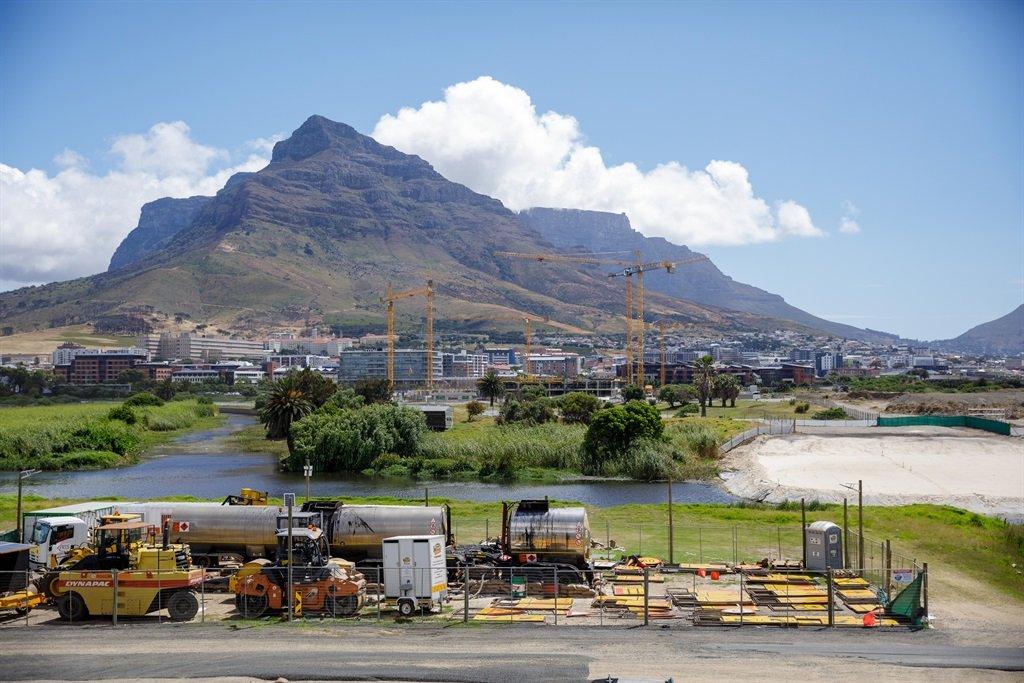Africa-Press – South-Africa. The City of Cape Town says the River Club development with Amazon as an anchor tenant will protect and enhance, not harm, the heritage of the Khoi and the San.
In addition, the municipal planning approvals are conditional on continuing consultations over the nature of the heritage aspects included in the development. This would be consulting on the types of plants in the medicinal garden, the eco walk, and the street names.
“The development will give visibility and due recognition on a site that has no tangible signs of its critical history,” said advocate Ron Paschke for the city, in the Western Cape High Court on Wednesday.
He said the site’s heritage value lay in memories and oral history and not tangible assets like buildings, archaeological fragments, or gravesites.
“The only tangible [heritage asset] is the river, which is polluted and concreted.”
Paschke said the site was undoubtedly important to the Khoi and the San, but the city also believed that its state before the development did not enhance the dignity of heritage.
It was a golf club exclusively for members, with non-indigenous plants, alien grass, an asphalt parking lot, and a colonial-style building dating back to the 1920s. And, before it became the golf club’s function centre, it was a recreation centre for SA Railways workers (before Transnet).
The city was making its submissions in an appeal against an interdict to stop construction handed down by Deputy Judge President Patricia Goliath in March when she decided that some First Nations groups had been excluded from consultations.
Paschke said the court also needed to consider the benefits that the development would bring.
It would form part of an economic recovery, and already 5 329 people are employed on the construction side. Ultimately 19 000 job opportunities connected to the site were expected.
“Nothing in Cape Town rivals this,” Paschke submitted.
“It’s Amazon. Amazon’s headquarters will be used on the site,” he said, adding that ultimately R4.5 billion would be spent on the development. “It is a regenerative force.”
In addition, the development would include a 20% affordable housing component with 120 units within the 600-unit residential component, and any delays would limit the opportunity for people to live closer to the CBD.
“The mayor decided that because of heritage, it [the development] is important, and the development should proceed, not in spite of it,” Paschke said.
The advocate said the project had been on everyone’s mind for years, and there was nobody who did not know about it.
It was advertised and there were written submissions and hearings, including from First Nations groups.
There were 184 objections, and the mayor believes the city went beyond the legal requirements for consultations. The city felt it had actually exceeded any legal requirements in this regard.
The court heard an application to rescind Goliath’s judgment brought by the Observatory Civic Association and the Goringaicona Khoi Khoin Indigenous Council (GKKITC) in opposition to the development. The main crux of the rescission application was a challenge to the standing of the person who brought it on behalf of the GKKITC – Tauriq Jenkins.
The developers of the Liesbeek Leisure Trust allege that Jenkins misled Goliath into believing he represented the GKKITC and that they were opposed to the development.
Jenkins denied misleading anyone and insisted that a document purporting to suspend him as a supreme high commission was irregular. This document was presented by counsel also representing the GKKIT who are in support of it.
That application was followed by an appeal against Goliath’s judgment, which continues.
For More News And Analysis About South-Africa Follow Africa-Press






